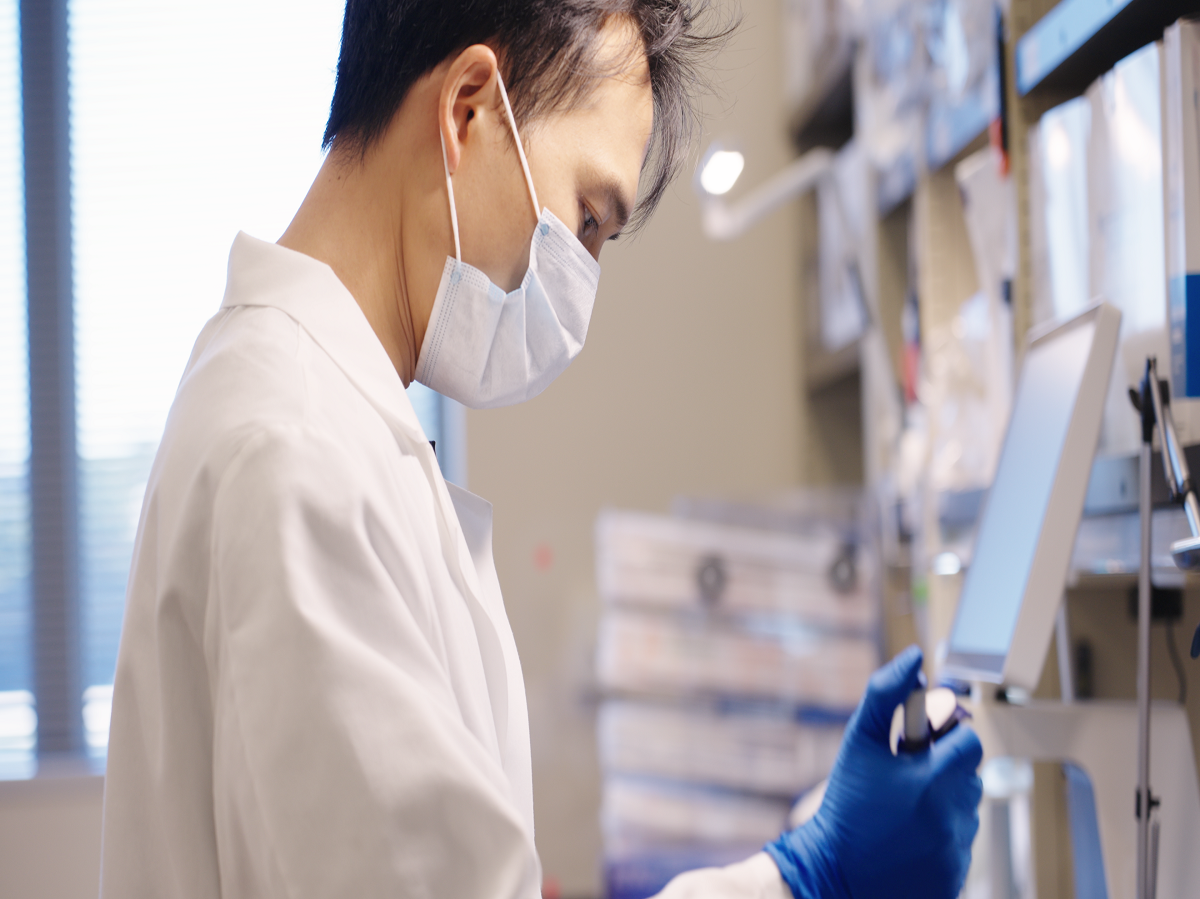
Jiaxing Chen, a bioinformatics and genomics doctoral student at Penn State College of Medicine and Penn State Huck Institutes of the Life Sciences, is part of the Penn State research team to create the first protein-based nano-computing agent that functions as a circuit. Image Credit: Penn State Huck Institutes of the Life Sciences/Penn State
Conventional synthetic biology techniques for cell-based therapies, such as those that kill cancer cells or promote tissue regeneration after injury, rely on the expression or suppression of proteins that perform a desired action within a cell. This method takes time (for proteins to be expressed and degraded) and consumes cellular energy. A team of researchers from Penn State College of Medicine and Huck Institutes of the Life Sciences is trying a new approach.
We’re engineering proteins that directly produce a desired action. Our protein-based devices or nano-computing agents respond directly to stimuli (inputs) and then produce a desired action (outputs).
Nikolay Dokholyan, G. Thomas Passananti Professor and Vice Chair, Department of Pharmacology, Pennsylvania State University
Dokholyan and bioinformatics and genomics Doctoral Student Jiaxing Chen detail their strategy to build their nano-computing agent on May 26th, 2023, in Science Advances. They created a target protein by combining two sensor domains, or regions of the protein that respond to stimuli. In this scenario, the target protein adjusts its orientation, or position in space, in response to light and the drug rapamycin.
To put their invention to the test, the researchers introduced their altered protein into live cells in culture. They employed equipment to evaluate changes in cellular orientation after exposing the cultured cells to the stimuli of the sensor domains.
Their nano-computing agent formerly needed two inputs to produce one output. Chen now claims that there are two alternative outputs, and the output is determined by the sequence in which the inputs are received.
If rapamycin is sensed first, followed by light, the cell will adopt one orientation angle; however, if the stimuli are received in reverse order, the cell will adopt a different orientation angle. This experimental proof-of-concept, according to Chen, paves the way for the development of more complicated nano-computing agents.
Theoretically, the more inputs you embed into a nano-computing agent, the more potential outcomes that could result from different combinations. Potential inputs could include physical or chemical stimuli and outputs could include changes in cellular behaviors, such as cell direction, migration, modifying gene expression, and immune cell cytotoxicity against cancer cells.
Jiaxing Chen, Doctoral Student, Pennsylvania State University
The group intends to improve their nano-computing agents and experiment with other uses of the technology. Dokholyan, a Penn State Cancer Institute and Penn State Neuroscience Institute researcher believes their notion could potentially serve as the foundation for next-generation cell-based therapeutics for diseases like viral infections, autoimmune diseases, nerve injury, diabetes, and cancer.
Penn State College of Medicine’s Yashavantha Vishweshwaraiah, Richard Mailman, and Erdem Tabdanov also contributed to this study. The authors declare that they have no conflicts of interest.
The National Institutes of Health (grant 1R35GM134864) and the Passan Foundation supported this research.